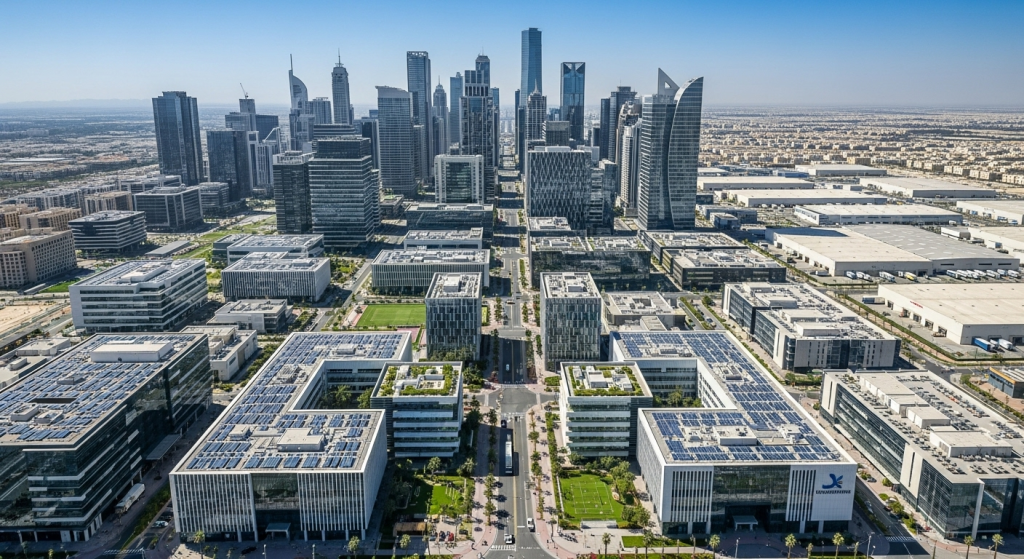The United Arab Emirates (UAE) has long been a beacon for investors seeking lucrative opportunities in the Middle East. As we approach 2024, the investment landscape is evolving, driven by technological advancements, regulatory reforms, and a focus on sustainability. This article delves into the emerging sectors and investment opportunities in the UAE, providing insights for both local and foreign investors.
Current Economic Overview
The UAE’s economy has shown resilience and adaptability, recovering strongly from the impacts of the COVID-19 pandemic. According to the World Bank, the UAE’s GDP is projected to grow by 3.5% in 2024, supported by robust oil prices and a diversified economy. The government’s commitment to Vision 2021 and the UAE Centennial 2071 plan aims to position the country as a global investment hub.
Key Economic Drivers
- Oil and Gas: While the UAE is diversifying its economy, the oil and gas sector continues to be a significant contributor to GDP.
- Tourism: With major events like Expo 2020 and the FIFA World Cup, tourism is set to rebound, attracting investments in hospitality and entertainment.
- Real Estate: The real estate market is witnessing a surge in demand, particularly in residential and commercial properties.
- Technology: The UAE is investing heavily in technology and innovation, fostering a startup ecosystem.
Emerging Investment Sectors
As the UAE continues to diversify its economy, several sectors are emerging as attractive investment opportunities:
1. Renewable Energy
The UAE is leading the charge in renewable energy, with ambitious targets to generate 50% of its energy from clean sources by 2050. The Mohammed bin Rashid Al Maktoum Solar Park is one of the largest solar projects in the world, attracting significant investment. Investors can explore opportunities in solar, wind, and other renewable technologies.
2. Technology and Innovation
The UAE’s focus on becoming a technology hub is evident through initiatives like Dubai Internet City and Abu Dhabi’s Hub71. Investment opportunities abound in artificial intelligence, blockchain, and fintech. The government is also encouraging innovation through funding programs and incubators.
3. Healthcare
The healthcare sector is experiencing rapid growth, driven by an aging population and increased demand for quality healthcare services. The UAE government is investing in healthcare infrastructure, making it a prime sector for investment. Opportunities exist in telemedicine, pharmaceuticals, and health tech startups.
4. E-commerce and Retail
The pandemic has accelerated the shift towards e-commerce, with online retail sales expected to continue growing. Investors can capitalize on this trend by exploring opportunities in logistics, digital payment solutions, and online marketplaces.
5. Education and Training
With a young and diverse population, the demand for quality education and vocational training is on the rise. The UAE government is investing in educational reforms, creating opportunities for investors in private schools, universities, and training centers.
Investment Regulations and Incentives
The UAE has made significant strides in enhancing its investment climate. Key regulations and incentives include:
1. 100% Foreign Ownership
Recent reforms allow foreign investors to fully own businesses in various sectors, eliminating the need for a local partner in many cases. This change has made the UAE an even more attractive destination for foreign direct investment.
2. Free Zones
The UAE boasts over 40 free zones, offering tax exemptions, full repatriation of profits, and simplified business setup processes. These zones cater to various industries, including technology, media, and manufacturing.
3. Investment Funds
The UAE government has established several investment funds to support startups and innovative projects. These funds provide financial backing and mentorship, fostering a vibrant entrepreneurial ecosystem.
Challenges and Considerations
While the UAE presents numerous investment opportunities, potential investors should be aware of certain challenges:
1. Regulatory Compliance
Navigating the regulatory landscape can be complex, particularly for foreign investors. It is essential to understand local laws and regulations to ensure compliance.
2. Market Competition
The UAE’s attractiveness has led to increased competition in various sectors. Investors should conduct thorough market research to identify unique value propositions.
3. Economic Fluctuations
Global economic conditions can impact the UAE’s economy. Investors should stay informed about global trends and their potential effects on local markets.
Conclusion
The UAE continues to be a prime destination for investment, with emerging sectors offering exciting opportunities for both local and foreign investors. By understanding the current economic landscape, identifying key sectors, and navigating the regulatory environment, investors can position themselves for success in 2024 and beyond. For more insights and assistance in exploring investment opportunities in the UAE, visit Persian Horizon’s Investment Consulting Services.
Source: https://www.emirates247.com/business








